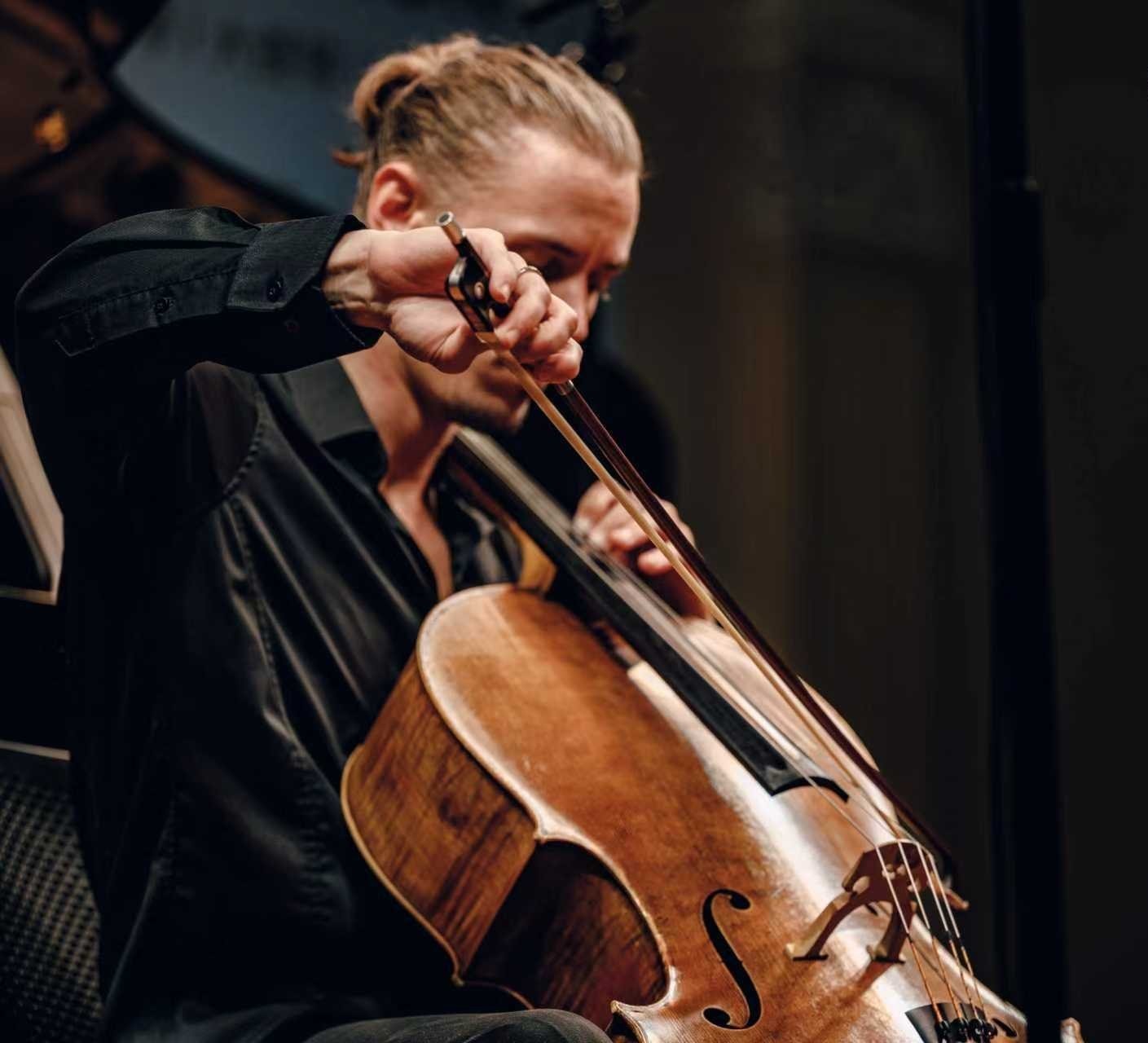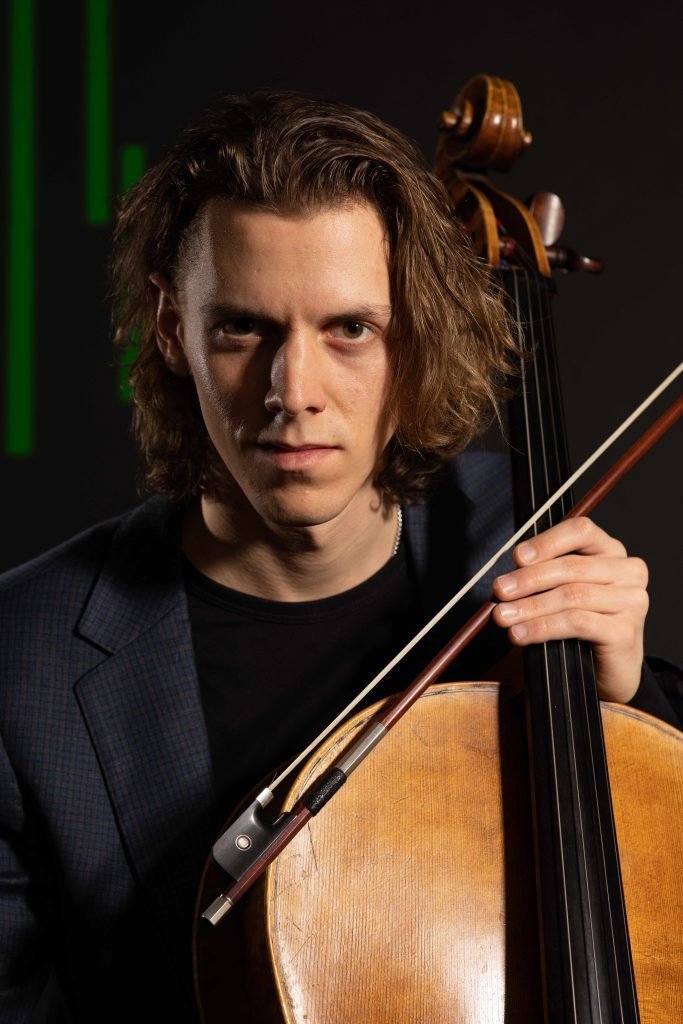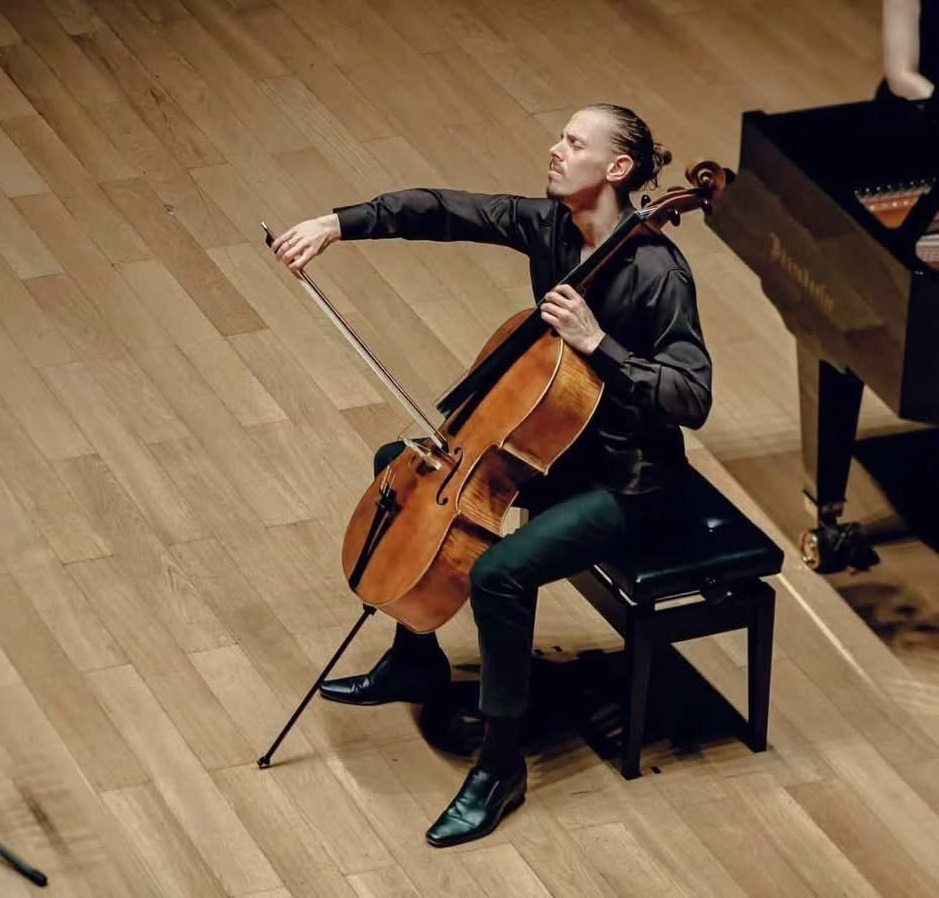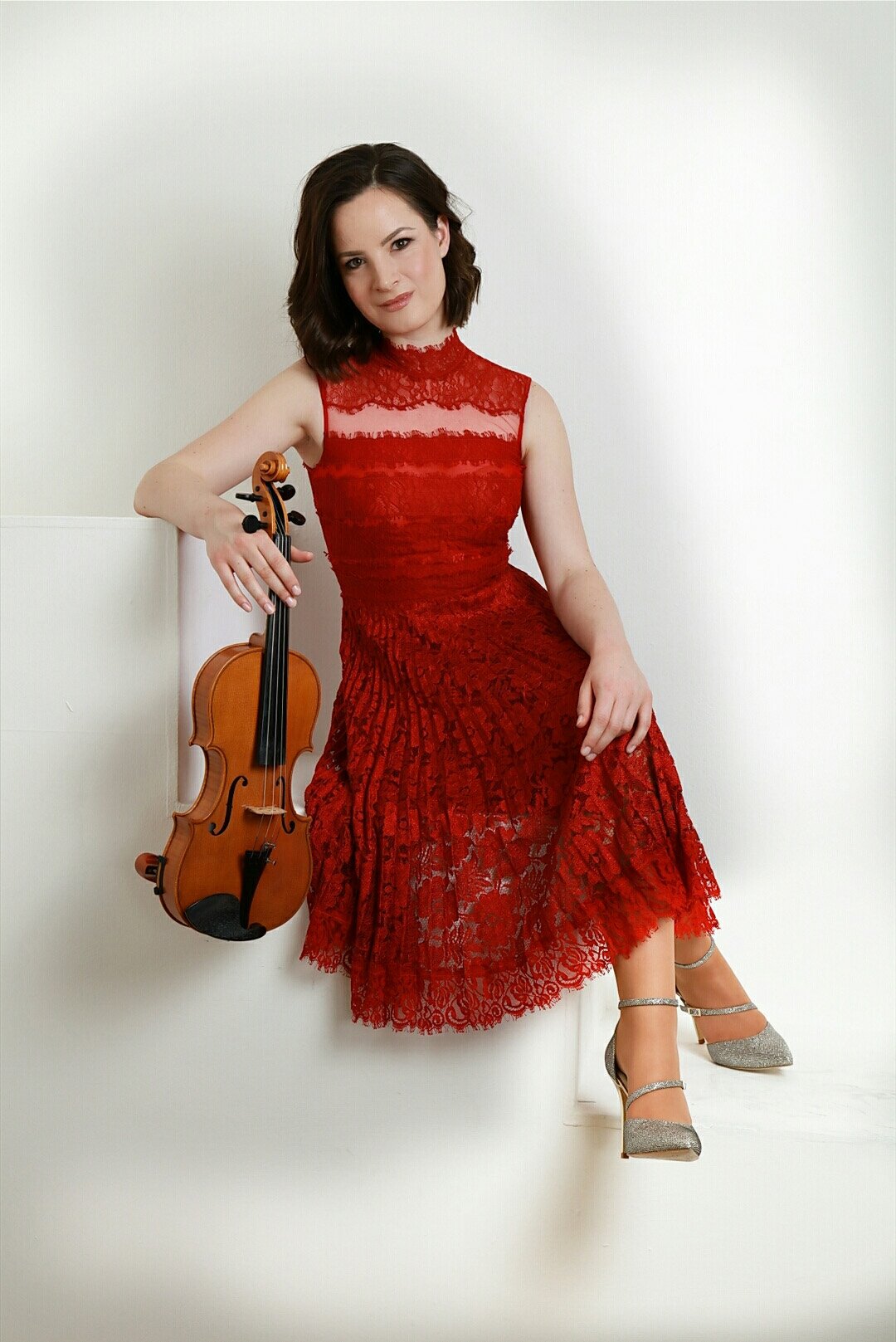
There was only one gig that was going to draw cellist Matthias Balzat back to New Zealand — a spot with the NZTrio.
"It’s just a world-class standard that Somi [Kim] and Amalia [Hall] bring to the table.
"And another very strong aspect was just seeing how successful they were at promoting and advocating for new works and bringing new compositions and exciting compositions to stages and being able to tour with them and be successful with them. So that was something that I strongly admired."
The cellist has taken up the spot vacated by Ashley Brown earlier this year and will join the trio permanently next year, but is currently touring the country with the group performing its final programme of 2025.
That has meant that while Balzat moved back to Auckland in August from Dusseldorf in Germany where he has lived for more than six years, his bags have remained unpacked as he had work in Australia and then hit the road with the Hypnotique tour.
Once the tour is over in a few days, he hopes to get some time to enjoy being back in the country with family and friends.
Looking back, he can see Dusseldorf was an "extraordinary time", not only for his music but also culturally.

"That was quite a special course, one which allowed me to spend more one-on-one time with my professor and it was a lot more hands-on and a lot more performative and sort of less on the academic side. So that allowed me to branch out and work more personally on my own performance projects."
It was during one of his final exams that he experienced one of the most special concerts of his career so far.
"Just with the knowledge that I was set to move back home, I think that added an element of nostalgia to those performances. So one of those would absolutely be the Britten Cello Symphony that I performed with a German orchestra over there in January and just the impact of that particular piece which was already one of my favourites."
For Balzat, it was the conclusion of many years of musical study. He began playing the cello when he was 3. He was the youngest of seven children who, at the encouragement of their mother, all played musical instruments, often performing folk and Celtic music together.
"My mother is a piano teacher and she was the one who fostered all of this musical education that we all had. She was a bit of a superwoman, really. I mean, home-schooling all of us, taking us all to music lessons, sitting in, taking notes, practising with us, accompanying us in all of our performances, composing music for all of us to play."
While the cello was selected for him, he has never deviated from finding the "nerd in me" and was always fascinated by trying to find the technical limits of the instrument to see what it was capable of.
"It’s a fascinating connection to human nature and just how organic it is to express something in a musical language and how that represents the human heart in such an organic way."

"I think I probably realised that, maybe at the age of 13 or 14, that music was definitely something that was the most likely to boost me forward into a professional setting."
He went to high school for a year with the sole focus of getting enough credits to go to university and he achieved it, starting university at age 14.
"There was a slight competitive nature in me that was very goal-driven and very happy to try and get admitted into university as early as possible, as young as possible. I think I was always in the right place at the right time, academically speaking, to allow me to achieve that and that was quite cool."
It required a move to Hamilton where he was able to live with and study alongside his violinist sister.
Balzat found studying with James Tennant "fuelled the fire of motivation" keeping him motivated and inspired to continue to push his playing.
"I’m so grateful for the input that he had in encouraging me to get the best out of the cello that I could. The thing that perhaps gets taken for granted ... is the sort of grunt work and the long hours it takes as a kid and sort of spending the time to make what essentially is an extremely unnatural physical instrument to get around and to work at it so much that it becomes second nature."
He completed his degree at Waikato University at the age of 17, along the way winning many competitions such as the ROSL Chamber Music Scholarship Competition New Zealand, New Zealand National Concerto Competition (twice), and New Zealand’s Creative Performing Arts Person of the Year award, before moving to Europe to continue his studies.
On visits home to New Zealand he has performed solos with the New Zealand Symphony Orchestra and Christchurch Symphony. While in Europe, he has performed with the Harbin Symphony and Neue Philharmonie-Westfalen, among others, and won competitions such as the International Wallace Cello Competition, Schoenfeld International Cello Competition, Accordi Musicali International Competition and ROSL Annual Music Competition Strings Competition, in London.

"So that certainly saves a bunch of fees and makes it more practical for me to travel a little bit more lightly packed. I tell you what, the first few flights I’m sort of racking my brain thinking, ‘Oh, have I forgotten something? My back feels so much lighter, I think I’ve left something behind’."
He has left his cello in Europe as he hopes to continue to travel and perform overseas around his NZTrio commitments.
"I’ve adapted to those long flights and learnt how to get a good decent number of hours of sleep on there, so that certainly makes it a bit easier."
During his years in Germany he has performed with both symphony and chamber orchestras, enjoying the intimate communication the smaller chamber groups provide.
"When you’re doing a solo, there’s much more of an opportunity to dive inward into your own playing and to really, really set the focus and the level of focus inward and solely on to your instrument and that’s something that’s just drawn my fascination into the cello. Probably most of all, actually, is this idea of being able to connect into a heightened sense of focus. So the two are very different but share an equal part of my passion."
As a younger cellist he loved playing things that were fast and challenging but, the older he got, the more he related to music with "heart and soul".
"The music that represents human emotions and how that can actually be expressed on stage in a natural way — those are the things these days that tend to draw my attention. And so a lot of the standard romantic repertoire, for example, seems to hit that spot very well."
Balzat also enjoys performing contemporary music.

"That goes hand in hand with this bringing new music to the table, too, because I feel like I’ve gone through all of the standard repertoire anyway.
"And so to start jumping into some new works is exciting."
For each upcoming performance, Balzat works to ensure he is prepared physically and mentally. He is a strong advocate of getting out in nature.
"That kind of inspires you in a metaphysical way, then that’s also as valuable, if not more so."
Having greater access to the outdoors is one of the benefits of coming home.
New Zealand being rich in nature with inspiring landscape and wonderful people was "a force for positive motivation".
To see:
NZTrio Hypnotique, Dunedin Public Art Gallery, tomorrow 7pm











